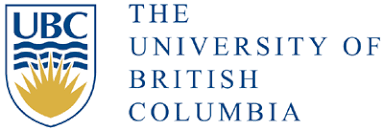Author Guidelines
If you would like to publish an article with FSAPub, Author Guidelines may help you. We are committed to providing you with the resources and advice you need to succeed in submitting your work and getting it published as smoothly and quickly as possible.
Are you looking for suitable journals to publish in?
If your manuscript is nearly ready for submission and you don't know which journal would be best for your work, choose a journal from the list and click to its homepage to find a detailed description, the instructions for authors and contact names.
Editorial Process
Peer review
Submissions are assessed by the Editorial Board and are subject to external peer review using the single blind method whereby the authors are blinded to the identity of the reviewers and editors.
Due to the high volume of submissions received, the Editor-in-Chief and the Editorial Board operate a rapid triage system. This workflow is in place to allow authors to submit to a more appropriate journal with minimal delay.
On average the journal returns a decision on a peer-reviewed paper in 12 days.
Appeals
Authors who feel they have grounds to appeal a rejection decision should send a rebuttal letter to the editorial office, detailing the reasons for the appeal. Rebuttals will be considered by the Editor-in-Chief, often in consultation with the Editorial Board Member who handled the paper. Decisions on appeals are final.
Plagiarism
Authors must not use the words, figures, or ideas of others without attribution. All sources must be cited at the point they are used, and reuse of wording must be limited and be attributed or quoted in the text.
Manuscripts that are found to have been plagiarized from a manuscript by other authors, whether published or unpublished, will be rejected and the authors may incur sanctions. Any published articles may need to be corrected or retracted.
Duplicate submission and redundant publication
FSAPub considers only original content, i.e. articles that have not been previously published, including in a language other than English. Articles based on content previously made public only on a preprint server, institutional repository, or in a thesis will be considered.
Manuscripts submitted to FSAPub journals must not be submitted elsewhere while under consideration and must be withdrawn before being submitted elsewhere. Authors whose articles are found to have been simultaneously submitted elsewhere may incur sanctions.
If authors have used their own previously published work, or work that is currently under review, as the basis for a submitted manuscript, they must cite the previous articles and indicate how their submitted manuscript differs from their previous work. Reuse of the authors' own words outside the Methods should be attributed or quoted in the text. Reuse of the authors' own figures or substantial amounts of wording may require permission from the copyright holder and the authors are responsible for obtaining this.
FSAPub journals will consider extended versions of articles published at conferences provided this is declared in the cover letter, the previous version is clearly cited and discussed, there is significant new content, and any necessary permissions are obtained.
Redundant publication, the inappropriate division of study outcomes into more than one article (also known as salami slicing), may result in rejection or a request to merge submitted manuscripts, and the correction of published articles. Duplicate publication of the same, or a very similar, article may result in the retraction of the later article and the authors may incur sanctions.
Citation Manipulation
Any submitted document, which is found to contain citations whose basic objective is to increase the number of citations of a given author's article published in a specific journal will incur citation manipulation consents.
Data Falsification or Fabrication
The submitted document that is identified to have fabrication or falsified the experimental results like as manipulation of images will also incur falsification or fabrication consents.
Incorrect Author Contribution
All listed or mentioned authors should have made a significant contribution towards the research work submitted and should be approving all its claims. It is necessary to list out the specific individual marking the significant contribution, which may include students or can be the laboratory technicians.
Conflicts of Interest
In order to maintain the transparency and help readers to form their own judgements of potential bias, authors should declare any competing financial interests in regards to the work being described or presented.
During submission, policy entails that every author should reveal if any, financial interests or collaborations, direct or indirect, which may raise the question of conflict or bias in the submitted work or in the conclusions, opinions given or implications, or any other sources of funding for related direct or indirect academic competition.
However, in case of manuscript acceptance, Conflict of Interest information should be mentioned in a published statement.
Permissions to reproduce previously published material
Permission is essential to reproduce material from the copyright holder. Articles cannot be directly published without these permissions.
Ethics committee approval
All the manuscripts dealing with original human or animal data should include a statement on ethics approval at the commencement of the Methods section. Also, should contain the mentioned information: the name and the address of the responsible ethics committee, the protocol number, along with the date of approval that is attributed by the ethics committee mentioned.
The paragraph can declaim, for example:
"Ethical approval for this study was given by the Ethical Committee of University Name or Hospitals, of certain place, on specific date."
Furthermore, as detailed above for the studies carried on human participants, it is necessary to state evidently that you obtained the written informed consent from the participants involved. Kindly, refer the latest version of the declaration given by specific organization. Similarly, experiments that involve animals, you must provide the state of animal care and licensing guidelines under which the study is performed and reported. This should be provided in accordance with the ARRIVE statement (Animals in Research: Reporting in Vivo Experiments). In any case, if ethics clearance was not obligatory or if there was any deviation or change from the standard of ethical requests, it is required to state the specified reason.
Though, please note that the editors might ask you to provide evidence of ethical approval. Besides, If you have approval from a National Drug Agency (or similar) please state this and provide details, this can be particularly useful while discussing the use of unlicensed drugs.








